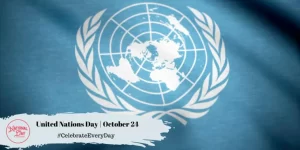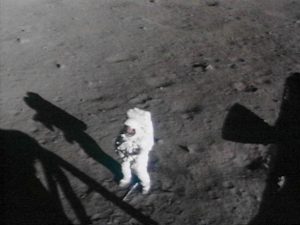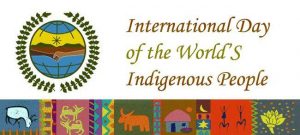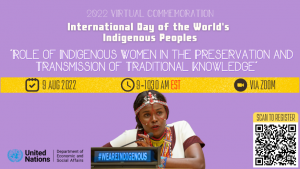 United Nations Day recognizes the founding of the United Nations (UN) in 1945. The celebration is observed annually on October 24th.
United Nations Day recognizes the founding of the United Nations (UN) in 1945. The celebration is observed annually on October 24th.
#UnitedNationsDay
U.N. Day has traditionally been marked throughout the world by meetings, discussions, and exhibits about the achievements and goals of the organization.
The United Nations works for the entire human family of seven billion people and cares for the Earth, our one and only home. ~ Secretary-General Ban Ki-moon
Today the United Nations consists of 193 member states and 2 observer states. The mission of the United Nation is to maintain international peace and security.
The UN also sets terms for protecting human rights around the world. In 1948, they created international law with a Universal Declaration of Human Rights.
The member nations deliver humanitarian aid to populations in crisis. The first aid delivered was an immediate response to the devastation following World War II.
Another aim of the international organization is to promote sustainable development.
Some major achievements of the UN include:
- The UN peacekeeping budget is less than 0.5% of global military spending
- Their World Food Programme (WFP) provides food and assistance to 91 million people in 83 countries
- They also supply vaccines to 45% of the world’s children
- The UN helps people who displaced by violence, conflict, and persecution.

 It is recorded in the gospel text of today (John 17:20:26).
It is recorded in the gospel text of today (John 17:20:26).
 In 2004 the assembly proclaimed the Second International Decade of the World’s Indigenous People (2005-2014). The assembly also decided to continue observing the International Day of Indigenous People annually during the second decade. The decade’s goal was to further strengthen international cooperation for solving problems faced by indigenous peoples in areas such as culture, education, health, human rights, the environment, and social and economic development.
In 2004 the assembly proclaimed the Second International Decade of the World’s Indigenous People (2005-2014). The assembly also decided to continue observing the International Day of Indigenous People annually during the second decade. The decade’s goal was to further strengthen international cooperation for solving problems faced by indigenous peoples in areas such as culture, education, health, human rights, the environment, and social and economic development. There are an estimated 370 million indigenous people in the world, living across 90 countries. They make up less than 5 per cent of the world’s population, but account for 15 per cent of the poorest. They speak an overwhelming majority of the world’s estimated 7,000 languages and represent 5,000 different cultures.
There are an estimated 370 million indigenous people in the world, living across 90 countries. They make up less than 5 per cent of the world’s population, but account for 15 per cent of the poorest. They speak an overwhelming majority of the world’s estimated 7,000 languages and represent 5,000 different cultures. We here in the first world take our coffee, bananas, jeans and sneakers for granted, but there are many people in other countries that are not so lucky. Every day, tens of thousands of people in various Asian, African and South American countries – men, women and even children – work themselves to the bone in nearly unbearable conditions for pennies so we can continue to enjoy those things. However, there are many people in this world who feel that everyone deserves decent wages and working conditions, regardless of where they live, and these people have created Fair Trade Day.
We here in the first world take our coffee, bananas, jeans and sneakers for granted, but there are many people in other countries that are not so lucky. Every day, tens of thousands of people in various Asian, African and South American countries – men, women and even children – work themselves to the bone in nearly unbearable conditions for pennies so we can continue to enjoy those things. However, there are many people in this world who feel that everyone deserves decent wages and working conditions, regardless of where they live, and these people have created Fair Trade Day.